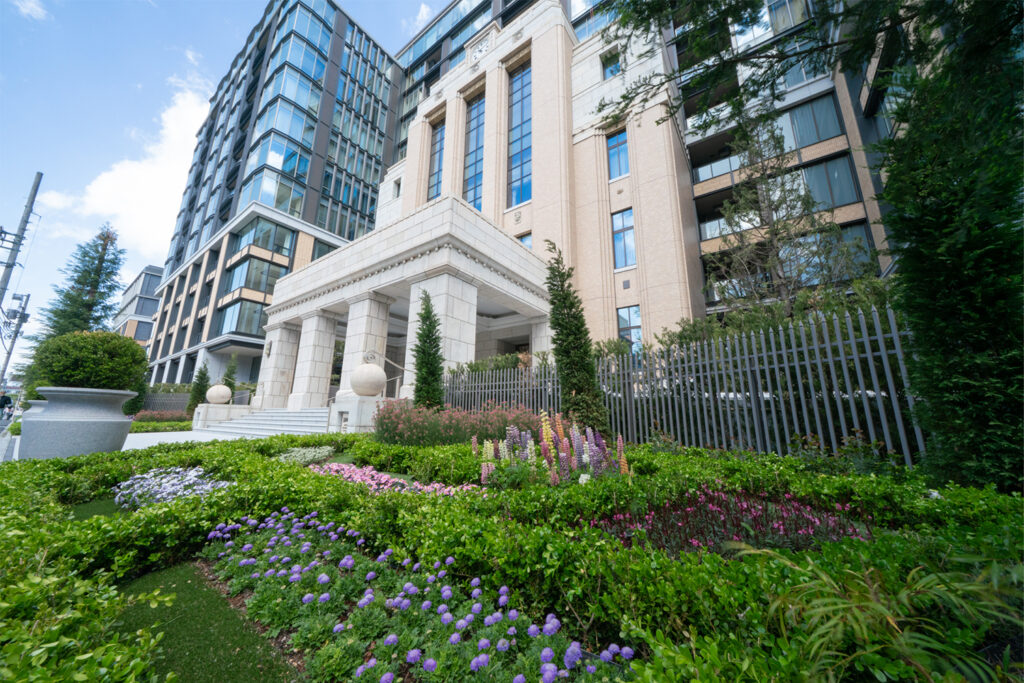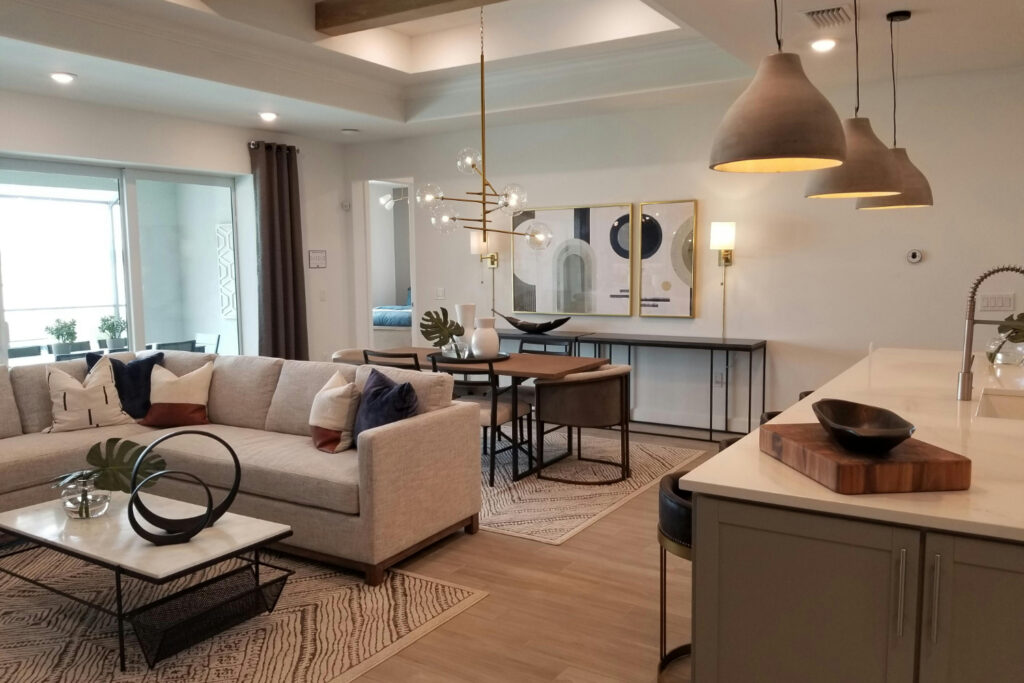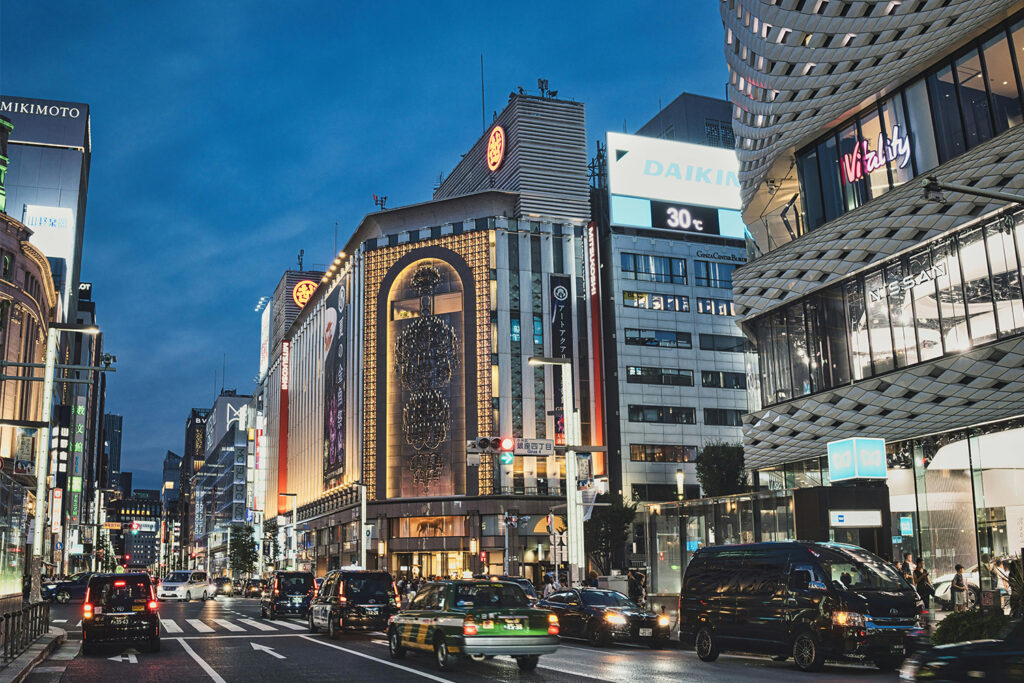
Does Japanese real estate depreciate in value? That’s a loaded question and it’s complicated. There are some parts of Japanese real estate that are likely to decrease in value and others that are likely to increase in value. The stereotype of Japanese homes only last 30 years and depreciates isn’t always true and in this article we will be taking a deep dive into the question ‘does Japanese real estate depreciate in value’. Let’s first go over the common considerations when it comes to real estate value.
1. The Role of Location in Real Estate Value
One of the most crucial factors in determining the value of real estate is its location. Properties in desirable areas can appreciate in value even if the building itself is aging. Location can often trump the age of the structure when it comes to valuation. For instance, properties in central Tokyo or near tourist hotspots have seen consistent appreciation due to high demand. View Housing Japan’s area guide on central Tokyo areas here.
Key Points on Location:
- Desirable areas often see property values rise despite the age of the buildings.
- Central Tokyo is a prime example of a location where real estate generally appreciates.
- Tourist areas also tend to maintain or increase in value due to constant demand.
2. The Impact of Economic Policies on Real Estate
The economic policies of a country can significantly influence the real estate market. Abenomics, the economic policy package introduced under Prime Minister Shinzo Abe, had a noticeable impact on Japanese real estate. By focusing on monetary easing and fiscal stimulus, Abenomics aimed to revive the Japanese economy, and one of the sectors that benefited was real estate. The policy led to increased domestic and foreign investment in Japanese properties, particularly in desirable areas.
Economic Policies and Their Effects:
- Abenomics led to increased investment in real estate.
- Monetary easing and fiscal stimulus were key components.
- Both domestic and foreign investors became more interested in Japanese real estate.
3. The Future of Japanese Real Estate: Sustainability and Innovation
Japan is at the forefront of technological innovation and sustainability, and this extends to its real estate market. The country is increasingly focusing on building sustainable, energy-efficient homes and commercial spaces. These “smart buildings” not only have a longer lifespan but also offer features like automated energy management, which can add to their value.
Sustainability Factors:
- Energy-efficient designs are becoming more common.
- Smart buildings offer automated systems for better energy management.
- Longer lifespan and lower maintenance costs can lead to higher property values.
4. The Influence of Demographics on Real Estate Value
Japan’s unique demographic situation also plays a role in the real estate market. With an aging population and low birth rates, there are areas, particularly in rural Japan, where the demand for new homes is low. This lack of demand can lead to depreciation in property values. However, in urban centers where the population is relatively young and the job market is robust, real estate often appreciates in value.
Demographic Considerations:
- Aging population in rural areas can lead to lower demand and depreciation.
- Urban centers with younger populations and job opportunities often see real estate appreciation.
- Demographic shifts can have long-term impacts on property values.
Big Questions Surrounding How Long Japanese Real Estate Last?
All buildings (regardless of country) have a limited lifespan and will depreciate over time. The Ministry of Land, Infrastructure, Transport, and Tourism (MLIT) claims that wooden houses last for 27-30 years. Reinforced concrete buildings last 37-40 years pertaining to the material and the duration of the buildings. For real estate depreciation causes, a wooden house has a lifespan of 22 years, brick buildings has a lifespan of 38 years, and reinforced concrete buildings lifespan is 47 years. However, the Waseda Faculty of Science and Engineering estimates the lifespan of the average Japanese house is at 64 years nowadays. The Japanese government has created an “expiration date” for Japanese real estate, but that is not necessarily true all the time. For example, there are a lot of kominka in Japan that are hundred of years old but still are lasting and have retained their value. There have also been many improvements on earthquake code standards and materials. This proves that as long as the property is properly maintained, the lasting of the property will most likely stay the same or increase.
Do Japanese Houses Lose Value after 30 years?
We asked Mitsuo Hashimoto (Cofounder of HousingJapan) if Japanese houses lose value after 30 years. He said “In terms of depreciation value, yes; but then again, if there is a property for sale in a desirable area, even though the property is 30 years, the property price will go up because of the location.” He also said “Depending on the location, so for example, if you buy a property in an undesirable location, then it could lose value after day one, but in prime locations, it could last 30-50 years value-wise.” In terms with the material value, materials will depreciate. As stated before, officially for depreciation causes, wooden houses have a lifespan of 22 years, brick buildings of 38 years, and reinforced concrete buildings lifespan is 47 years. That being said, as long as the building is safe, livable, and can generate rental income, it’s not valueless and will be worth an appropriate price in the market. Search available investment properties here.
Why does Japan have the Reputation that Houses only Depreciate?
So far, we have found out how long Japanese real estate lasts for, and the value of Japanese homes after 30 years. So why does Japan still have the reputation that houses only last 30 years and only depreciates even though that’s not necessarily a true statement?
To find the answer to this question we asked Mitsuo Hashimoto again. He said “Before the Bubble Period, there was a perspective that real estate will always go up, but after the Bubble around 1990, real estate prices went down and kept going down for around 20 odd years, until Prime Minister Shinzo Abe (2006-2007, 2012-2020) came into power and created abenomics. Due to the policies created from abenomics, the price of real estate in desirable areas started to gradually go up. That is when people started to believe in real estate [in Japan] and that is why Japanese people started to buy real estate. Another thing about abenomics was that Abe also wanted to have more inbound in Japan, and that is when foreign people were made aware of Japanese real estate, and that is why a lot more foreign people started to buy real estate.”
Overall, from 1990 to 2012, real estate prices kept going down and because of that it created a perspective that Japanese homes only depreciates.

Is Japan’s Reputation of Tearing down Buildings and Building New Ones Changing?
Japan is infamous for tearing down buildings and building new ones. We asked Hashimoto if he thinks the trend of tearing down buildings and building new ones is changing and he said “For wooden houses, it hasn’t changed because it is relatively cheap to build wooden houses. The demolishing of reinforced concrete buildings is getting a lot more expensive and so I think it’s a lot more preferred to remodel or renovate the building because it doesn’t cost as much. So compared to 5 or 10 years ago, we are seeing a lot more buildings that are getting remodeled or renovated.”
In the future, we may continue to see this trend of remodeling and renovating for reinforced concrete buildings, as long as the construction/demolition cost is higher than the renovation/remodel cost.
Is Japanese Real Estate appreciating or depreciating?
This depends on the location of the real estate. Japanese land prices in 2023 have increased 3.3% and with that the building price has increased but that is not everywhere of course. In desirable areas such as Central Tokyo, Japanese real estate has seen appreciation and will most likely continue to see appreciation but in more undesirable areas, Japanese real estate has seen a flat rate and at times depreciation, depending on the location.
In conclusion, does Japanese Real Estate Depreciate in Value?
Japanese real estate consists of buildings and land. Historically land prices have risen, and will most likely continue to rise, while buildings over time will depreciate regardless of country. Officially the depreciation value of real estate is 22, 38, and 47 years, but studies have shown that the lifespan of a building is higher than officially stated with proper maintenance. Proper maintenance is highly recommended in order to allow the property to retain its value and longevity and as long as it is seen as livable, safe, and can generate rental income, it will reach an appropriate price in the market. For around 20+ years, people have seen the Japanese real estate only depreciate. These reasons have created the perspective that Japanese real estate only lasts 30 years and will only depreciate but due to abenomics, people have started to realize that there is hope in the Japanese real estate market and this perspective is slowly changing because of this. Recent trends have seen more remodels and renovations of buildings. Also in desirable areas, Japanese real estate has appreciated but on the contrast, in more undesirable areas, Japanese real estate has seen a flat rate and at times depreciation, depending on the location. We recommend to buy or invest in real estate in desirable areas with strong demographics and have potential to grow.
Search available investment properties here
Search all properties for sale here
The Institute’s data is based on official acquisition announcement
Sources:
https://housekey.jp/does-japanese-real-estate-decrease-value-go-down/
https://housekey.jp/how-long-buildings-last-japan-construction/
https://www.japantimes.co.jp/news/2020/01/21/reference/japans-demographics-real-estate/
Contact Us
Housing Japan
7F BPR Place Kamiyacho, 1-11-9 Azabudai, Minato-ku, Tokyo, Japan 106-0041











